PENGUIN  CLASSICS
CLASSICS
THE CENTURIONS
JEAN LARTGUY (b. Jean Pierre Lucien Osty) was born in Maisons-Alfort, a small town just southeast of Paris. In March 1942 , he escaped occupied France for Spain, where he spent time in prison before joining the Free French Forces. He served seven years of military service in North Africa and Korea, during which he earned various military awards. After being wounded by a grenade, Lartguy turned to writing, working as a journalist and war correspondent. He covered conflicts in eastern Europe, the Middle East, southeast Asia, and North Africa, primarily for the magazine Paris Match. In 1955 , he earned the Albert Londres Prize for his reporting in Indochina. A prolific writer, Lartguys body of work includes more than thirty works of fiction and nonfiction, most of which focus on the consequences of war and decolonization in the twentieth century. He is best remembered for his Algerian War trilogy, consisting of The Mercenaries ( 1954 ), The Centurions ( 1960 ), and The Praetorians ( 1961 ). The Centurions, an overnight sensation and bestseller in France, became a film titled Lost Command, starring Anthony Quinn, in 1966 . Though he died in 2011 , his significance as a chronicler of irregular warfare continues to rise with the proliferation of modern guerrilla warfare and counterinsurgency tactics.
ROBERT D. KAPLAN is the author of many acclaimed books on the military, foreign affairs, and travel, including Imperial Grunts: The American Military on the Ground, Hog Pilots, Blue Water Grunts: The American Military in the Air, at Sea, and on the Ground, The Coming Anarchy, and The Revenge of Geography: What the Map Tells Us About Coming Conflict and the Battle Against Fate. He is currently a national correspondent for The Atlantic and chief geopolitical analyst for Stratfor. He served on the Defense Policy Board and was named by Foreign Policy magazine as one of the worlds Top Global Thinkers in both 2011 and 2012 .
ALEXANDER (XAN) WALLACE FIELDING was a British author and translator. He served as a Special Operations executive in the British Army in Crete, France, and the Far East. The author of several books of his own, he also translated works by Pierre Boulle, Jean Lartguy, and others from French into English. He died in Paris in 1991 .
PENGUIN BOOKS
Published by the Penguin Group
Penguin Group (USA) LLC
Hudson Street
New York, New York 10014

USA | Canada | UK | Ireland | Australia | New Zealand | India | South Africa | China
penguin.com
A Penguin Random House Company
First published in Great Britain by Hutchinson & Co. (Publishers) Ltd. 1961
First published in the United States of America by E. P. Dutton & Co., Inc. 1962
This edition with a foreword by Robert D. Kaplan published in Penguin Books 2015
Copyright 1960 by Presses de la Cite, an imprint of Place de Editeurs
Translation copyright 1961 by Penguin Group (USA) LLC and The Random House Group
Foreword copyright 2007 , 2015 by Robert D. Kaplan
Penguin supports copyright. Copyright fuels creativity, encourages diverse voices, promotes free speech, and creates a vibrant culture. Thank you for buying an authorized edition of this book and for complying with copyright laws by not reproducing, scanning, or distributing any part of it in any form without permission. You are supporting writers and allowing Penguin to continue to publish books for every reader.
Originally published in French as Les Centurions by Presses de la Cite
Robert D. Kaplans foreword is a revised version of his article Rereading Vietnam which appeared online in The Atlantic in 2007 .
ISBN --- 15117
Cover illustration: Ed Fairburn
Version_1
To Jean Pouget
Foreword
Jean Lartguy: Decoding the Warrior Ethos
For thousands of years men have fought one another in situations where the battle lines are not fixed and words like front and rear lines have little meaningfor the war is everywhere, with civilians caught up and brutalized in the conflict. Irregular warfare, guerrilla uprisings, and counterinsurgency are timelessnot merely fads of the moment. Malaya, Vietnam, Somalia, Bosnia, Kosovo, Chechnya, the Congo, Afghanistan, Iraq, and Syria are just some of the datelines in which the twentieth and twenty-first centuries register conflicts whose fundamentals the ancients would have been familiar with. With the collapse of central authority in the Middle East, otherwise known as the Arab Spring, this situation applies to an even greater degree. For countries like Libya, Yemen, Syria, and Iraq are barely states at this juncture, with tribes, militias, and gangs, divided by territory, sect, and ethnicity, battling for primacy over a confused and violent landscape.
Conventional modern war, which Napoleon did so much to define and institutionalize, with its formalized set-piece battles and vertical chains of command, has mainly been with us for little more than two centuries. Its future, moreover, is uncertain. So while counterinsurgency is presently disparaged, because the results in Iraq and Afghanistan have been so unsatisfying for Americans, the lessons of counterinsurgencyif forgottenwill only have to be relearned on some future morrow. For that is the verdict of history going back to antiquity.
You cannot approach Vietnam and Iraq in particular, or the subject of counterinsurgency in general, without reference to Jean Lartguy, a French novelist and war correspondent who in his own person encapsulates the divide between a professional warrior class that lives by these enduring, historical truths and a civilian home front alienated from them. Lartguy inhabits the very soul of the U.S. Special Operations community, alienating not only civilian readers but members of the conventional military in the process.
Throughout my years observing the Special Operations community close up, I witnessed several editions of Lartguys The Centurions ( 1960 ) passing through the hands of those about whom I reported. Green Berets recommended to me not only Lartguys The Centurions but also The Praetorians ( 1961 ): books about French paratroopers in Vietnam and Algeria in the 1950 s that resonated with their own experiences in Afghanistan and Iraq. And it wasnt just Green Berets who found Lartguy essential. Alistair Horne, the renowned historian of the Algerian War, uses Lartguy for epigrams in A Savage War of Peace ( 1977 ). Some years back, Gen. David Petraeusthen the future commander of U.S. ground forces in Iraqpulled The Centurions off a shelf at his quarters in Fort Leavenworth, Kansas, and gave me a disquisition about the small-unit leadership principles exemplified by one of the books characters.
More than half a century ago, this Frenchman was obsessed about a home front that had no context for a hot, irregular war; about a professional warrior class alienated from its civilian compatriots as much as from its own conventional infantry battalions; about the need to engage in both combat and civil affairs in a new form of warfare to follow an age of victory parades and what he called cinema-heroics; about an enemy with complete freedom of action, allowed to do what we didnt dare; and about the danger of creating a sect of singularly brave iron men, whose ideals were so exalted that beyond the battlefield they had a tendency to become woolly-headed. Lartguy dedicates his book to the memory of centurions who died so that Rome might survive, but he notes in his conclusion that it was these same centurions who destroyed Rome.

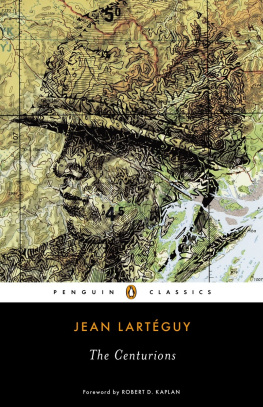


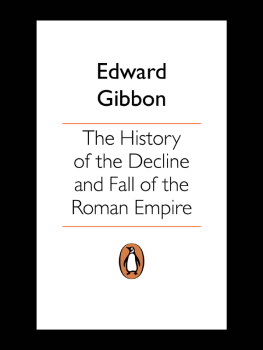
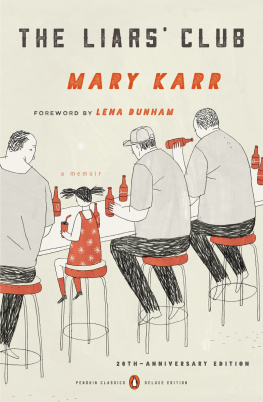
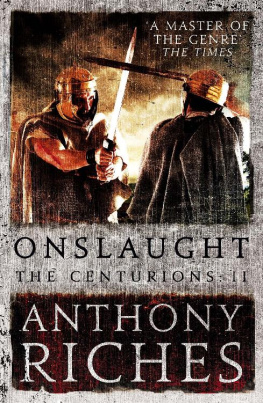
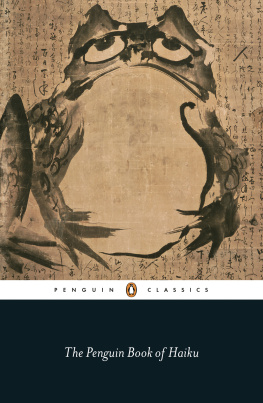



 CLASSICS
CLASSICS
